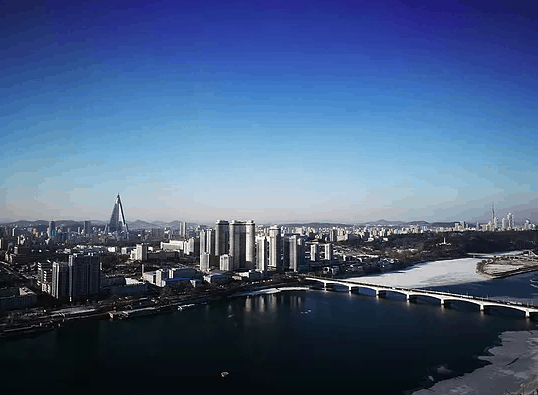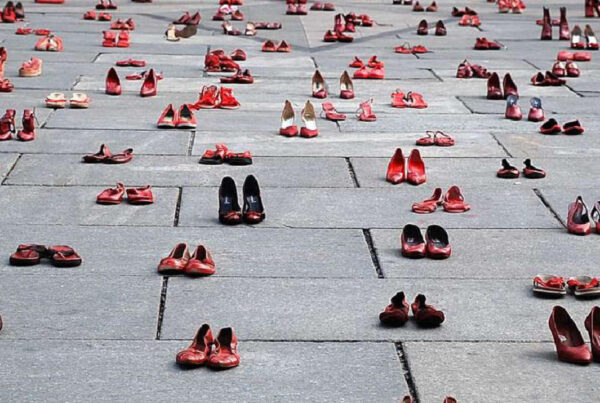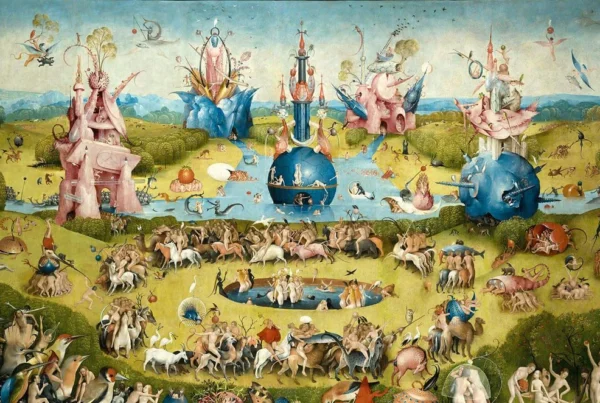We have republished this article through our partnership with Le Dragon Déchaîné, the journal of Sciences Po Paris Campus of Le Havre. The original post may be read on their new website here.
It is a great pride for me to be invited to talk about the misconceptions of North Korea. Admittedly, traveling to North Korea is not commonplace, nor totally safe. However, my journey to North Korea this winter was a rather brief one. I’m not capable of interpreting the social phenomena in the country like a geopolitics expert, but it’d be useful to review our impression of the state that media has imposed on us in the light of what we have experienced and witnessed.


Ryogyong Hotel, the tallest building of Pyongyang, which took three decades to be constructed.
To clarify, I am not, and will not in the short run, glorify the regime. Nor will I state that what the media has told us may be wrong or biased to undermine the fact that North Korea is falling behind. It is by no means a paradise, with an ironic hierarchy in a revolutionary state, a strict control of society, a culture castrated by the government, and of course, after paying attention to the poor conditions of roads in Kaesong it is self-evident that the economy is far from prospering.
But these are less exposed to and less known by the public; Ryomyong Avenue rose from dust in nine months; 4D films are available in the Palace of Science, Technology, and Culture in Pyongyang; citizens of Pyongyang chanted and danced happily with us foreign visitors to celebrate the new year of 2018. North Koreans are not as dull and emotionless as one may imagine. It should never be forgotten that the DPRK is, rather than a keyword of international politics’ news, a state where 25 million people are living.
Let’s begin with the economy: the most striking contrast between the DPRK and its Southern counterpart. It’s easy to observe the poverty in the country upon crossing the Yalu River, with the grey buildings and poorly-equipped railway station in sight. But a more impressive point haunting my mind is the wide gap between Pyongyang and other cities. While other cities like Sinuiju and Kaesong reflect the image of the DPRK in our minds, Pyongyang is definitely another world

View of Pyongyang seen from the top of Juche Tower Photo: Runhang Zhong//Le Dragon Déchaîné
Pyongyang is comparable to second-tier or third-tier cities in China with neat streets, tall buildings, and crowds shopping for the New Year in supermarkets. Public transportation is well developed: buses and trams, which are always purchased from former East Germany, come every other minute, carrying people to every corner of the city. Though not a large amount of vehicles are kept, traffic jams do occur at around 7 pm. Electricity shortage remains the biggest problem; the city was completely dark at 8 pm, which I witnessed from the 44-storage high Goryeo Hotel. Despite this being said, computers are accessible for free to Pyongyang citizens, especially primary school students, to get access to local networks for academic papers and resources about science, technology, languages and many other disciplines.

Celebrating the new year of 2018 with Pyongyang citizens. Photo: Fangzhou Zhao
It’d be a unique experience to speak English with North Korean people in Pyongyang. Certainly, they know English, though limited. “Class of Mao Zedong” of East Pyongyang No. 1 High School was not only a class to enchant the Sino-DPRK friendship but also to select outstanding students to serve the country.

The Class of Mao Zedong. They were preparing for the college-entrance exam. Photo: Ruhang Zhong//Le Dragon Déchaîné
“How old are you?” One of our teammates asked.
“Sixteen.” Responded a shy girl.
She went on to introduce all her subjects, her favorite, and the fact that she was preparing an exam to get enrolled in a university in April, with English impressive enough for all of us.

The girl who spoke English with us (left). Photo: Wanting Hsieh
But that was only part of the story. Another occasion where I showed off my English was when I encountered a woman selling snacks on the street. She was well aware that I am a foreigner for there was no badge of Kim Il Sung and Kim Jong Il pinned on my chest. I pointed at the snack I would like to try and handed out my Renminbi.
“No. No. No, accept Yuan.” Renminbi seemed to be too expensive for her, or perhaps she did not have the correct license to conduct business with foreigners. But “accept” doesn’t sound like a word spoken by a woman who did not study English.
“Yes. 5 for 2.” She finally reluctantly accepted my coins. One may make the accusation that her grammar constitutes a solid reason to suspect her as an American spy.
English can be seen even in kindergartens. Displayed together with propaganda posters and portraits of Kim Il Sung and Kim Jong Il, there were toys to learn English which were said to have been smuggled from South Korea because some Korean vocabularies like pencil had been erased to be replaced by more “native” ones.
Some may question those to be “performed” in front of visitors to deliver an embellished vision of the country. Surely the DPRK authority lies sometimes, like what they told us about religious freedom when we were in a Catholic church. But I’m inclined to attribute the seemingly surprising phenomenon to the inequality and hierarchy in North Korean society, within which the most trustworthy social groups are relocated the most resources. And undoubtedly the DPRK requires educated people to sustain the functioning of the regime.


Ryomyong Avenue shows an unknown side of the mysterious state. Photo: Runhang Zhong//Le Dragon Déchaîné
Let’s conclude with my favorite travel destination, Ryomyong Avenue, which was constructed in March 2016 and was finished the December of the same year. Walking among the post-modernist buildings, I realized the potential of the often mocked and despised state. DPRK reminded me of my own nation, China, in the sense that so many remnants of socialism kept in the North Korean society resembled that of China a few decades ago. China was negligible 40 years ago and was predicted to soon collapse by observers 20 years ago. However it only grew to be the second largest economy, so there’s no harm keeping an open and objective attitude towards the seemingly insane country in our current world, where everything is possible.
Runhang Zhong, also known as Marco, is a second year student from China at Sciences Po Paris, Campus du Havre.
Other posts that may interest you:
- The Trouble with ‘Ecocide’
- Carbon dioxide removal – hit or miss?
- Local Victories for Turkish Opposition — A Sign of Hope?
- Are France and Japan a Mismatch Made in Heaven?
- A Reflection on Dark Tourism
Discover more from The Sundial Press
Subscribe to get the latest posts sent to your email.





